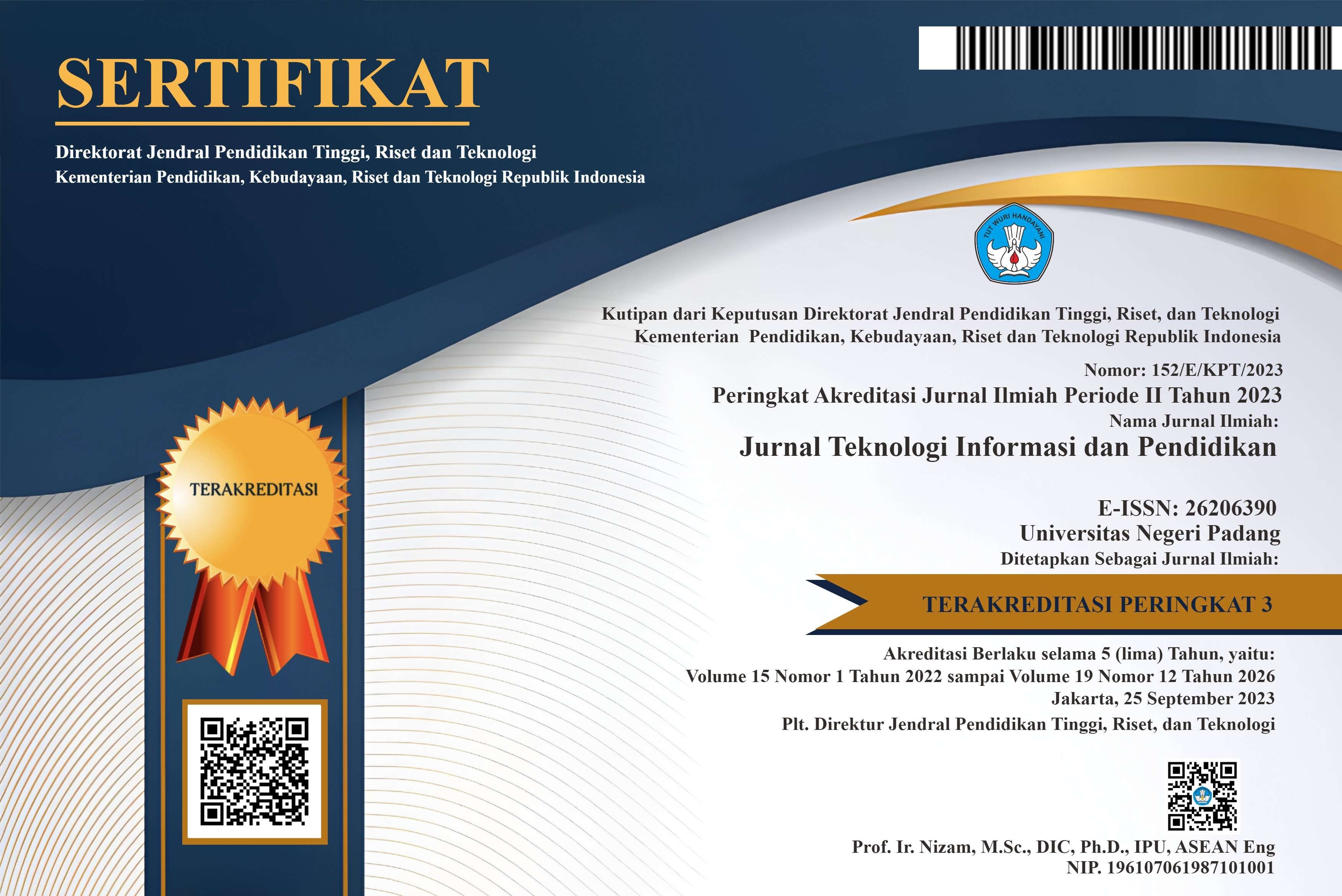PERSEPSI MAHASISWA TERHADAP PENGGUNAAN QUIZIZZ DALAM PEMBELAJARAN AKUNTANSI KONSOLIDASI BANK SYARIAH DI IAIN PONOROGO
Abstract
This research aims to determine student perceptions of the effectiveness of the use of Quizizz as a game based learning applications. The population of the research is all 4th semester sharia banking students class of 2018. Respondents in this research is sharia Banking students who take sharia banking consolidation accounting course for the academic year 2019/2020. Total respondents in this research is 210 with total returned and could be analyzed questionnaires is 169. Data analysis performed using descriptive method which analyzed using quantitative and qualitative analysis. The research data was obtained by distributing surveys to all research samples using Google Forms application. The questionnaire instrument was measured using five likert scale, that is strongly disagree, disagree, not agree, agree and strongly agree.The results showed that in general students considered the use of Quizizz to have a positive impact in learning activities on the sharia banking consolidation accounting course. Students' consider Quizizz is easy-to use application, makes lectures more fun, increase mastery of the material, and increase students' motivation and activeness in studying sharia banking consolidation accounting course. There are some limitations and problems found in using Quizizz according to students', including internet connection limitations, the time limit given is too little, and some students also feel the need to discuss about the questions that are done through the Quizizz application in class so that answers are known which is correct and which is wrong.
References
Asosiasi Penyelenggara Jasa Internet Indonesia, “Laporan Survei Penetrasi & Profil Perilaku Pengguna Internet di Indonesia 2018,” 2018.
W. J. A. Ramadhani, “Jurnal Teknologi Informasi dan Pendidikan,” J. Teknol. Komun. dan Pendidik., vol. 12, no. 1, p. 4, 2019.
B. Centauri, “Efektivitas Kahoot ! Sebagai Media Pembelajaran Kuis Interaktif Di SDN-7 Bukit Tunggal,” no. September, pp. 124–133, 2019.
G. Damara, “Students ’ Perceptions on the Use of Kahoot! As An Ice Breaker in Movie Interpretation Class,” 2016.
Y. Huda and D. Faiza, “Desain Sistem Pembelajaran Jarak Jauh Berbasis Smart Classsroom Menggunakan Layanan Live Video Webcasting,” J. Teknol. Inf. dan Pendidik., 2019, doi: 10.24036/tip.v12i1.173.
E. Ratnasari, R. Hikmawati, R. N. Ghifari, and U. Majalengka, “Quizizz Application As Gamification Platform To Bridge Students In Teaching,” no. 2003, pp. 1333–1337, 2019.
A. I. Wang, M. Zhu, and R. Sætre, “The effect of digitizing and gamifying quizzing in classrooms,” Proc. Eur. Conf. Games-based Learn., vol. 2016-Janua, no. Sharples 2000, pp. 729–737, 2016.
H. Bicen and S. Kocakoyun, “Perceptions of students for gamification approach: Kahoot as a case study,” Int. J. Emerg. Technol. Learn., vol. 13, no. 2, pp. 72–93, 2018, doi: 10.3991/ijet.v13i02.7467.
S. A. Licorish, H. E. Owen, B. Daniel, and J. L. George, “Students ’ perception of Kahoot ! ’ s influence on teaching and learning,” 2018.
C. Fies and J. Marshall, “Classroom response systems: A review of the literature,” J. Sci. Educ. Technol., vol. 15, no. 1, pp. 101–109, 2006, doi: 10.1007/s10956-006-0360-1.
K. Watty, J. McKay, and L. Ngo, “Innovators or inhibitors? Accounting faculty resistance to new educational technologies in higher education,” J. Account. Educ., vol. 36, pp. 1–15, 2016.
A. Setiawan, S. Wigati, and D. Sulistyaningsih, “Implementasi Media Game Edukasi Quizizz Untuk Meningkatkan Hasil Belajar Matematika Materi Sistem Persamaan Linear Tiga Variabel Kelas X IPA 7 SMA Negeri 15 Semarang Tahun Pelajaran 2019 / 2020,” pp. 167–173, 2020.
F. Zhao, “Using quizizz to integrate fun multiplayer activity in the accounting classroom,” Int. J. High. Educ., vol. 8, no. 1, pp. 37–43, 2019, doi: 10.5430/ijhe.v8n1p37.
L. S. L. Purba, “Peningkatan Konsentrasi Belajar Mahasiswa Melalui Pemanfaatan Evaluasi Pembelajaran Quizizz Pada Mata Kuliah Kimia Fisika I,” J. Din. Pendidik., vol. 12, no. 1, p. 29, 2019, doi: 10.33541/jdp.v12i1.1028.
I. Sinta, D. Rahayu, and P. Purnawarman, “The Use of Quizizz in Improving Students ’ Grammar Understanding through Self-Assessment,” vol. 254, no. Conaplin 2018, pp. 102–106, 2019.
C. Nkhoma, M. Nkhoma, S. Thomas, and L. K. Tu, “Gamifying a Flipped First Year Accounting Classroom Using Kahoot!,” Int. J. Inf. Syst. Eng., vol. 6, no. 2, pp. 93–115, 2018, doi: 10.24924/ijise/2018.11/v6.iss2/93.115.
E. P. Widoyoko, “Teknik penyusunan instrumen penelitian,” Yogyakarta: Pustaka Pelajar, 2016.
Copyright (c) 2020 JTIP: Jurnal Teknologi Informasi dan Pendidikan

This work is licensed under a Creative Commons Attribution-ShareAlike 4.0 International License.















.png)














